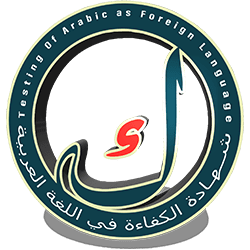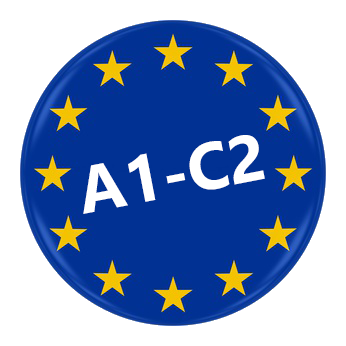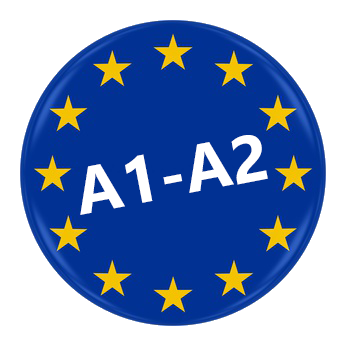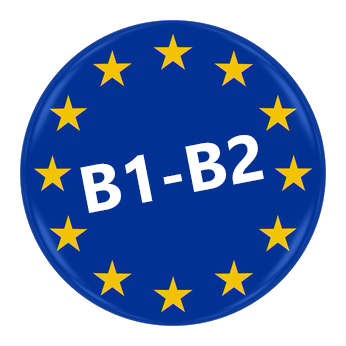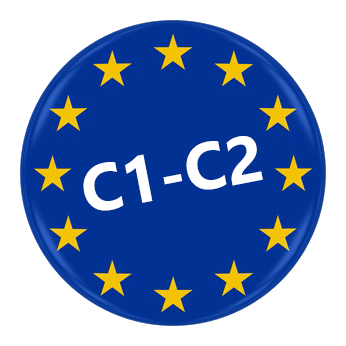We evaluate your Arabic language level according to the Common European Framework of Reference (CEFR)
independent, recognized & fair
regardless of the language acquisition background
online 24/7
testing from the comfort of your home
Take advantage of the powerful AL-ARABIYYA-TEST!
Knowing your actual level in Arabic will increase your chances of getting the job you deserve and save your money and time. Our Arabic Certificates are independent, reliable & widely recognized.
That’s why you’ll appreciate the AL-ARABIYYA-TEST.
The AL-ARABIYYA TEST is a fully computer-based Arabic language proficiency test developed by Eckehard Schulz, Professor at the Oriental Institute of the University of Leipzig.
The AL-ARABIYYA-TEST provides standardized proof of your Arabic proficiency at levels A1 to C2 according to the Common European Framework of Reference for Languages (CEFR), allowing potential employers to evaluate and compare your Arabic language skill.
Beware of Fake Certificates!
Fake certificates are currently circulating on the internet.
We examine legal steps against all persons and institutions in Germany and abroad who produced these certificates, falsified them, or used fake or falsified certificates and submitted them to authorities and educational institutions.
Please contact us if you suspect that a certificate assigned to us could be forged. We can clarify the authenticity at any time.
Forgery of documents is a criminal offense punishable under German law (§ 267 Criminal Code) with a prison sentence of up to 10 years.
Would you like to try it out right away?
Arabic Sample Test CEFR
![]()
![]()

Arabic for Kids
Modern Standard Arabic exams for kids. Test your child's knowledge of the Arabic letters with fun with this free Arabic test!
AL-ARABIYYA-TEST PRICES & OPTIONS
AL-ARABIYYA-TEST
BASIC
Listening, Reading, Writing
-
A1 - B2 CEFR
-
Listening
-
Dialect
-
Reading
-
Writing
-
Speaking
-
Online 24/7
-
Certificate as PDF by e-mail
AL-ARABIYYA-TEST
PRO
Listening, Reading, Writing, Speaking
-
A1 - C2 CEFR
-
Listening
-
Dialect*
-
Reading
-
Writing
-
Speaking
-
Online with appointment
-
Certificate as PDF by e-mail
Al-Arabiyya-Test
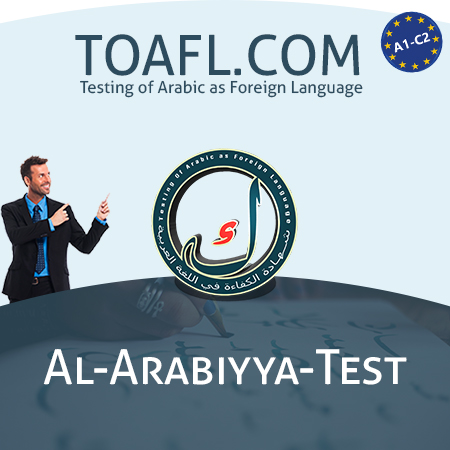
Get an Arabic certificate in the levels A1 – C2 (CEFR). The structure and content of the Arabic language proficiency tests are based on more than 40 years of experience in Arabic testing according to UNICERT and CEFR standards. The AL-ARABIYYA-TEST is designed and conducted by the AL-ARABIYYA-INSTITUTE and proves your competence in Arabic.
The AL-ARABIYYA TEST is a fully computer-based Arabic language proficiency test developed by Eckehard Schulz, Professor at the Oriental Institute of the University of Leipzig.
The development of the uniform framework for the AL-ARABIYYA-TEST according to the specifications of the Common European Framework of Reference for Languages (CEFR) was based on this very long experience. The efforts to make it computer-based and to benefit from the new technical options started in 2006 and lasted more than 5 years. Many academic professionals mainly from the Oriental Institute of the University of Leipzig participated in this process. The design of the test and the questions are also based on the results of more than 35.000 tests done by students in Germany and many other countries all over the world.
